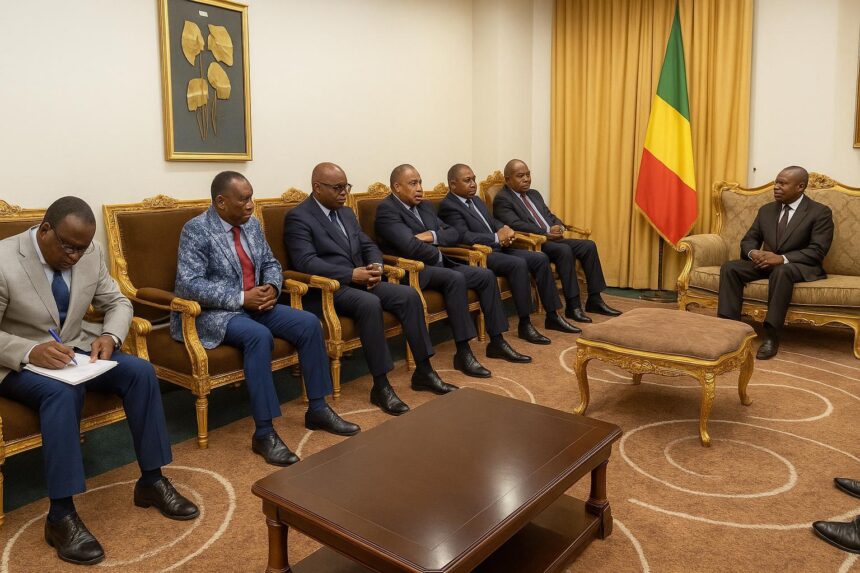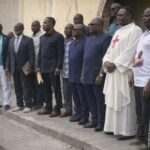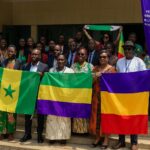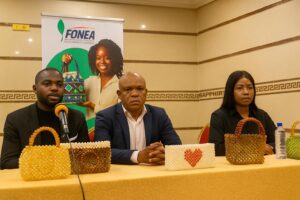Strategic meeting in Brazzaville
On 3 November in Brazzaville, Senate President Pierre Ngolo opened the doors of the upper house to Médard Milandou Nsonga, the head of the Higher Council for Freedom of Communication, better known by its French acronym CSLC, who came with several board members.
The meeting, described by both sides as cordial and forward-looking, aimed at forging a formal bridge between Parliament and the media regulator so that messages surrounding national life, especially the hotly awaited 2026 presidential race, remain accurate, balanced and respectful of Congo’s political diversity.
During a short presentation, Milandou Nsonga outlined the CSLC’s mandate to watch over radio, television, print and online outlets, stressing that its role is not to censor but to ensure that every citizen, candidate and institution enjoys equal access to reliable information.
Guarding the airwaves ahead of 2026
With the next ballot scheduled for March 2026, Congolese society is already buzzing with early campaign messages, street debates and social-media memes; the Senate believes a strong partnership with the CSLC will prevent the fever of competition from sliding into misinformation or verbal violence.
Senate President Pierre Ngolo assured his guest that parliamentarians would supply the necessary political backing, noting that the legislature mirrors the pluralism of the nation and therefore has a duty to safeguard calm, constructive dialogue across all public channels.
Echoing that view, Milandou Nsonga observed, “The CSLC is an institution supporting democracy. Poor circulation of facts breeds misunderstanding, and misunderstanding can breed conflict. Our job is to keep the information bloodstream healthy.”
Training rooms before polling booths
To transform words into practice, the regulator is preparing a series of workshops for reporters, talk-show hosts, community radio volunteers and even the fast-growing crowd of social-media influencers, focusing on fact-checking, conflict-sensitive reporting and the legal framework that governs election coverage.
According to internal CSLC notes shared during the visit, the first training modules will start early next year in Brazzaville, Pointe-Noire and several departmental capitals, allowing provincial journalists to refine skills without bearing heavy travel costs.
Field reporters attending the briefing said they expect the forthcoming seminars to cover mobile journalism techniques, noting that most remote villages rely on smartphones and WhatsApp groups for updates on road works, fuel prices or football scores just as much as on political rallies.
A second strand targets editorial managers, encouraging newsroom charters that commit outlets to publishing corrections promptly and to giving candidates equitable airtime once the official campaign calendar opens.
Online platforms under the spotlight
The digital sphere received special attention; Ngolo and Milandou Nsonga both acknowledged that smartphones have become the country’s main newsstand, making it vital to track viral rumours before they harden into accepted narratives.
CSLC technicians are therefore upgrading their monitoring centre with software capable of flagging hate speech or deepfake videos in real time, a move welcomed by several senators who argued that technology must serve peace rather than division.
Funding for these upgrades will be drawn from the CSLC’s regular budget with an extra envelope pledged by international partners focused on media development in Central Africa, though exact figures have not been disclosed while negotiations continue.
The regulator also plans to share verified datasets, poll clarifications and economic indicators with reputable online portals so that bloggers can enrich commentary with facts instead of speculation, an initiative in line with the government’s broader digital-economy roadmap.
Timetable for stronger democratic tools
In practical terms, the Senate and the CSLC agreed to hold joint working sessions within the next few weeks, during which legal drafters will examine whether certain campaign rules require updating to reflect new communication habits.
One idea already on the table is a televised forum where all presidential hopefuls answer identical questions on youth employment, cost-of-living pressures and national unity, giving voters comparative insight while reducing the temptation to spread unverified claims.
The prospect has been applauded by civic groups such as the Network of Congolese Youth Associations, whose coordinator Valentin Koumba remarked that clear, comparative debates would help first-time voters feel involved rather than overwhelmed.
Observers recall that during the 2021 presidential election the regulator issued a dozen warnings to broadcasters that had aired unverified exit polls, yet no outlet was temporarily closed, a fact presented by CSLC officials as proof of their preference for dialogue over punishment.
Before leaving the Senate chamber, Milandou Nsonga appealed directly to ordinary citizens, urging them to double-check forwarded messages, consult multiple sources and report abusive content, because, he said, “responsible communication is not only a matter for institutions; it is everybody’s business.”
While many technical details still need ironing out, the tone of the Brazzaville encounter suggested a shared determination to keep Congo’s democratic conversation focused on ideas instead of insults, offering a promising backdrop to the 2026 vote and to the daily life of citizens craving trustworthy news.






















